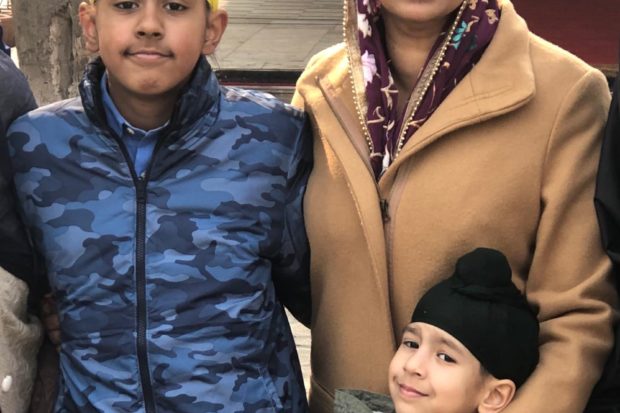
Sukhvir Kaur, an immigrant from India living in Visalia, knew something was wrong when her oldest son, Anmol, asked, “Mom, do I look different?” He avoided elaborating for a while, but later he explained to his mother that his schoolmates were constantly bullying him, calling him names and making fun of his patka, a head covering worn by Sikh boys.
Nine-year-old Anmol has been experiencing bullying almost since kindergarten, and now Kaur worries about her youngest son, a four-year-old soon entering the school system.
“At the beginning I was shocked, but then I decided to do something,” said Kaur, who decided to visit her son’s school and talk to the principal and teachers. “It was a good decision; at school, they listened to me and they took action. They even encouraged my son to let them know if this happens again.”
However, Kaur didn’t stop there. She wanted to be sure her son understood the situation, and she wanted him to be proactive if bullied, explaining to other kids what the patka is about and why he wears it.
The patka is worn by Sikh boys and young adults, while older adults wear a turban.
Sikhism is a religion that originated in the Punjab region of India—bordering Kashmir and Pakistan—at the beginning of the 15th century. It is a monotheistic religion, and its basic beliefs include faith and meditation in which the creator represents the divine unity and equality of all humankind. Sikhism doesn’t accept claims that a particular religion owns the absolute truth.
There are more than 25 million Sikhs around the world. Almost a million Sikhs call America home.
Sikhs, like most minorities and immigrants in the United States, are victims of bullying as a result of ignorance and racism.
“Most bullying against Sikhs started after 9-11,” said Kaur, who experienced how people reacted when her father-in-law moved to live with her family. “Some people would yell ‘Osama Bin Laden!’ at him while he walked around the neighborhood because of his long beard and turban.”
Those bullies referred to Osama Bin Laden (1957–2011), a Saudi Arabian native who is considered the intellectual organizer of the attacks on the Twin Towers in New York on Sept. 11, 2001.
Kaur decided to talk to her neighbors and explain to them her culture and religion. She noticed a positive reaction, even “one of the ladies became my best friend,” she said proudly. “The more I explain to them about ourselves, the more they accept us.”
Kaur is aware the bullying won’t stop for her kids. “Anmol will start middle school soon, then comes high school,” she commented with a tone of resignation, foreseeing new fights ahead to stop the bullying.
June 2019 was an important moment for Anmol. He auditioned to be part of a series of PSAs to be produced by PBS and the National Sikh Campaign “We Are Sikhs,” aiming to educate the public about the identity of Sikhs and their belief in justice and equality.
Anmol was accepted and he was part of one of the four PSAs produced. They started airing in September 2019. According to Kaur, Anmol’s participation helped him in his self-esteem and in a sense of pride of his culture.
“We have our church here in Visalia,” said Kaur. “There are more than 50 Sikh families in this town, mostly farmers, doctors—40% of doctors in the United States are from India—businesspeople, professionals.”
She hopes her efforts will pay off and that more people will respect Sikhs in Visalia.
“People should understand that we all are different, and we have to respect this,” said Kaur. “We are not just different because of the color of our skin, but because of our skills, language, attitude and culture.”
*****
Eduardo Stanley is the editor of the Community Alliance newspaper. Contact him at editor@fresnoalliance.com.
Advertising

